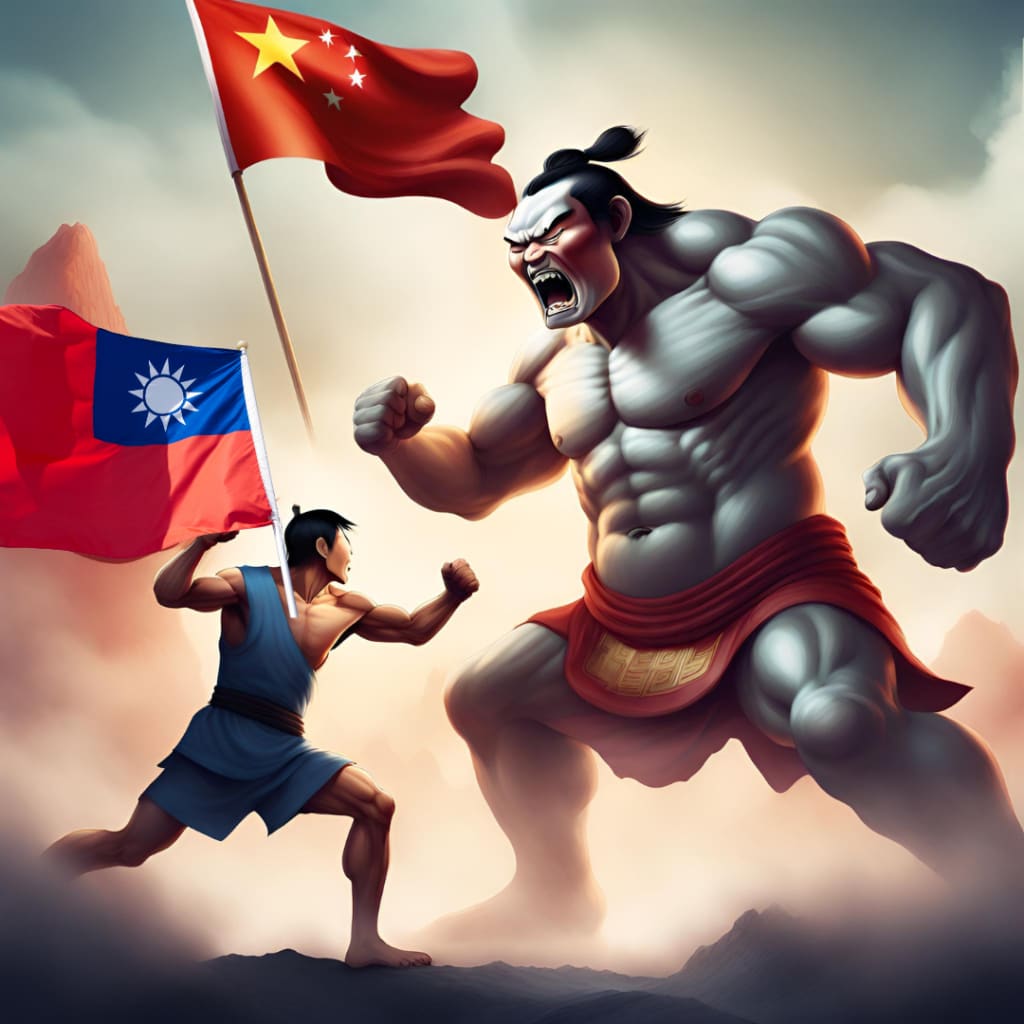
The relationship between China and Taiwan has always been complex and strained, with both sides claiming to be the true representative of China. The recent years, however, have witnessed an escalation in tensions, particularly in the military domain. China's growing military prowess, coupled with its aggressive territorial claims, has raised concerns not only in Taiwan but also among its allies, most notably the United States. In this article, we will delve into the historical background of the China-Taiwan conflict, analyze the defense capabilities of Taiwan, and explore the potential scenarios of a military conflict between the two nations.
Historical background: The complex relationship between China and Taiwan
The roots of the China-Taiwan conflict can be traced back to the Chinese Civil War in the mid-20th century. Following the communist victory in mainland China, the nationalist government under Chiang Kai-shek retreated to Taiwan, where it established the Republic of China. Since then, both sides have claimed to be the legitimate government of China, resulting in a politically and diplomatically contentious relationship. Despite the historical and cultural ties between the two regions, efforts to reconcile their differences and find a peaceful resolution have been elusive.
Taiwan's defense capabilities: An overview of the country's armed forces
In the face of China's military might, Taiwan has invested heavily in its defense capabilities. The country boasts a well-trained and technologically advanced armed forces, consisting of the Army, Navy, Air Force, and Marine Corps. The Taiwan Armed Forces have focused on developing a robust asymmetric warfare strategy, leveraging their geographical advantage and investing in advanced weaponry, such as anti-ship missiles, submarines, and modern fighter aircraft. This strategy aims to deter a potential Chinese invasion and inflict significant damage on the enemy forces, should a conflict arise.
China's military strength: Analyzing the potential threat
China's military strength cannot be underestimated. With the world's largest standing army and a rapidly modernizing military-industrial complex, China has emerged as a formidable global power. Its military capabilities include advanced missile systems, naval expansion, and a growing air force. The People's Liberation Army (PLA) is heavily focused on achieving regional dominance and asserting control over disputed territories, including Taiwan. The potential for a military conflict between China and Taiwan raises concerns for regional stability and the balance of power in the Asia-Pacific region.
The importance of Taiwan to the United States
Taiwan's strategic location and its democratic governance have made it a crucial ally for the United States in the region. The U.S. has a long-standing commitment to ensuring Taiwan's security and has provided military support to the island nation. The relationship between the U.S. and Taiwan is governed by the Taiwan Relations Act, which obligates the U.S. to provide Taiwan with the means to defend itself. In recent years, the U.S. has increased its military presence in the region and strengthened its cooperation with Taiwan, signaling its commitment to deterring any potential Chinese aggression.
The potential scenarios of a military conflict between China and Taiwan
While a peaceful resolution to the China-Taiwan conflict is ideal, it is essential to consider the potential scenarios in the event of a military conflict. A full-scale invasion of Taiwan by China would undoubtedly be a significant challenge for Taiwan's defense forces. However, Taiwan's asymmetric warfare strategy, combined with its geographical advantage and the potential support from its allies, could make any invasion costly for China. Other scenarios include limited military engagements, such as naval skirmishes or air encounters, which could escalate into a full-blown conflict.
Taiwan's defense strategy: Building resilient armed forces
Taiwan's defense strategy is focused on building a resilient armed forces that can effectively counter any potential Chinese aggression. This strategy includes enhancing the capabilities of its military through modernization and innovation, investing in advanced weaponry and technology, and developing a robust network of defense systems. Additionally, Taiwan has sought to strengthen its partnerships with like-minded nations, such as the United States, Japan, and Australia, to ensure collective security and deterrence against any potential threats.
International support for Taiwan's defense: The role of the United States and other allies
The United States plays a critical role in supporting Taiwan's defense capabilities. Through arms sales, military cooperation, and diplomatic support, the U.S. has demonstrated its commitment to Taiwan's security. Other allies, such as Japan and Australia, have also expressed their willingness to work with Taiwan to enhance regional security and stability. However, providing support to Taiwan is not without challenges. The delicate diplomatic landscape and the potential risk of triggering a larger conflict with China require careful navigation and strategic decision-making by all involved parties.
The diplomatic challenges for Taiwan: Navigating the political landscape
Taiwan faces significant diplomatic challenges as it seeks to maintain its international standing and garner support for its defense efforts. China's influence and pressure on other nations have resulted in limited formal recognition of Taiwan as a sovereign state. However, Taiwan has managed to establish unofficial relations with many countries and actively participates in international organizations under various names. Navigating the political landscape requires skillful diplomacy, strategic partnerships, and a proactive approach to raise awareness about Taiwan's importance in maintaining regional stability.
The impact on regional stability: Consequences of a China-Taiwan conflict
A military conflict between China and Taiwan would have far-reaching consequences for regional stability. The Asia-Pacific region is home to some of the world's largest economies and trade routes, making it a vital global hub. A conflict in the Taiwan Strait could disrupt these vital economic connections, potentially leading to a global economic downturn. Moreover, the conflict could escalate into a broader war, involving other regional powers and triggering a chain reaction of military alliances. The potential for such a conflict underscores the importance of maintaining peace and stability in the region.
Conclusion: The importance of maintaining peace and stability in the Taiwan Strait
The escalating tensions between China and Taiwan have raised concerns about the potential for a military conflict. Taiwan's defense capabilities, strategic partnerships, and support from the United States and other allies play a vital role in deterring any aggression from China. However, the delicate diplomatic landscape and the potential consequences of a conflict necessitate a concerted effort to maintain peace and stability in the Taiwan Strait. Diplomatic negotiations, dialogue, and a commitment to international law are essential for finding a peaceful resolution to the China-Taiwan conflict and ensuring the safety and security of the region as a whole.





Comments
There are no comments for this story
Be the first to respond and start the conversation.